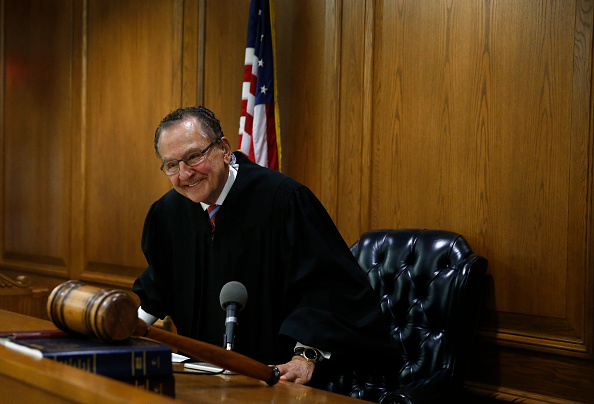Court Clarifies Execution Standard
Updated: The U.S. Supreme Court has ruled that a federal appeals court used an “improperly restrictive test” when it ruled that a mentally delusional death-row inmate could be put to death.
The 5-4 decision blocks the execution of Scott Panetti, Associated Press reports.
The 5th U.S. Circuit Court of Appeals had affirmed Panetti’s death sentence in Panetti v. Dretke, 448 F.3d 815. It ruled an inmate can be executed even if he does not have a rational understanding of the reason for his execution.
Justice Anthony M. Kennedy disagreed with that standard in in his opinion for the majority. “A prisoner’s awareness of the state’s rationale for an execution is not the same as a rational understanding of it,” he wrote.
“Gross delusions stemming from a severe mental disorder may put an awareness of a link between a crime and its punishment in a context so far removed from reality that the punishment can serve no proper purpose.”
Mental health experts who examined Panetti, sentenced to death for killing his wife’s parents, said the inmate is aware the state wants to execute him for the crime. But he believes the real reason is because the “forces of evil” are conspiring to prevent him from preaching the gospel, according to “A Death Sentence is Brought to Mind,” published in the April 2007 ABA Journal.
Panetti represented himself at trial, where he wore a purple cowboy outfit and tried to subpoena Jesus and the pope.
Kennedy’s opinion relied on the 1986 U.S. Supreme Court decision, Ford v. Wainwright, 477 U.S. 399, which held it is unconstitutional to execute someone who is insane. A concurrence proposed a standard to determine competency: A defendant should not be executed unless he “perceives the connection between his crime and his punishment.”
Kennedy said Ford did not foreclose an inquiry into whether Panetti had a rational understanding of the reason for his execution.
Kennedy also said Texas courts had failed to follow Ford’s due process requirements when they refused to allow Panetti to submit his own psychiatric testimony to rebut the conclusions of state-supported psychiatrists.
Addressing some procedural issues in the case, Kennedy wrote that Panetti may challenge his present competency for execution despite a prior finding that he was competent for trial. Even though Panetti’s claim was raised on a second habeas petition, federal law did not preclude it because the competency claim was not ripe at the time, Kennedy said.
The ruling is Panetti v. Quarterman, No. 06-6407 (PDF posted by SCOTUSblog).
Write a letter to the editor, share a story tip or update, or report an error.


